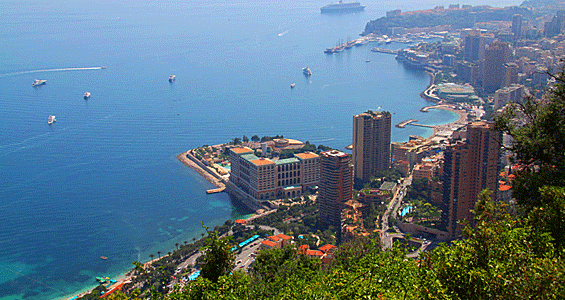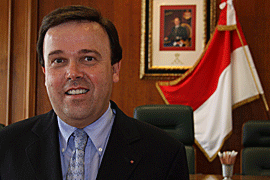Tax justice versus tax havens
G20 leaders promised a crackdown on tax havens in April, did they succeed?

 |
| Monaco has only made minor changes to tax regulation [Liz Dunningham] |
Two months ago G20 leaders pledged a crackdown on tax havens in response to the global financial crisis. But how much has changed?
The author Somerset Maugham once famously described Monaco as “a sunny place for shady people” and the tiny principality has never really lived it down.
Keep reading
list of 4 itemsBoeing hit with 32 whistleblower claims, as dead worker’s case reviewed
US imposes new sanctions on Iran after attack on Israel
A flash flood and a quiet sale highlight India’s Sikkim’s hydro problems
The phrase has become synonymous with “tax havens”; small but usually luxurious off-shore banking centres.
In recent months, however, tax havens have experienced a dramatic shift in how the world treats them.
|
Follow Al Jazeera’s Hamish Macdonald.
|
The G20 summit held in London in April this year saw the group’s world leaders collectively turn on tax havens, with Barack Obama, the US president, and Gordon Brown, the British prime minister, leading the charge.
Brown closed the summit saying: “The banking secrecy of the past must come to an end.”
But, in the months since, very little real change has been achieved.
Places like Jersey, Monaco and Switzerland have made minor changes, but an investigation by Al Jazeera has found that all are continuing to function in much the same way they always have.
‘Jealous of success’
The havens themselves believe they have been made a scapegoat.
Stephane Valeri, president of Monaco’s national council said: “It is very unfair to attack small states on this subject. Particularly my country … Monaco is a symbol, Monaco is well known and maybe a lot of people are jealous of the success of Monaco”.
And in any case it is now evident the crackdown launched by the international community has had minimal impact.
| IN VIDEO |
|
|
|
|
| More Videos… |
The most significant regulatory change following the G20 summit was implemented through the Organisation for Economic Cooperation and Development (OECD).
A “black-list” was created for the worst offenders, who could then be actively pursued by the OECD.
A “grey-list” was also created for those promising to start playing by the rules but were not yet fully compliant.
Those on the “black-list” were there because they had refused to start signing Tax Information Exchange Agreements (TIEA), which enable another jurisdiction to request information on an individual suspected of tax evasion.
But for tax havens like Monaco and Switzerland, which both finished on the grey list, there is a key loophole.
The requesting country can only ask for the information exchange if they already have “enough evidence” to mount a case against the individual.
Crucially, “enough” evidence is not properly defined. And Switzerland is guaranteeing its clients there will be no “fishing expedition” allowed by, for example, the US.
Legal loopholes
The Swiss are very clear about their position on this.
James Nason, spokesman for the country’s self-regulating “Bankers Association”, describes it like this: “The system can be abused for people who don’t want to pay taxes at home but again that is not really the job of Swiss banks to sort out.
| Interview |
|
|
“The Swiss banks aren’t going to be the world’s unpaid tax inspectors and police officials and spies, this is something for the home country to sort out,” he said.
But, of course, this is tax regulation we are talking about, so there are plenty of loopholes. And perhaps Jersey has identified the biggest loophole of all.
To avoid being on either the “black-list” or the “grey-list”, all a tax haven needed to do was sign 12 TIEAs.
Miraculously, Jersey signed them all just days before the G20 summit.
So, when Brown announced the black and grey lists, Jersey wasn’t on either of them, even though it is one of the richest tax havens in the world.
Little progress
And among Jersey’s 12 signed agreements were Greenland and the Pharaoh Islands; hardly the most significant players in the global financial system.
Far from stamping out tax evasion as they promised, the leaders of the G20 along with the OECD have made very little progress.
 |
| Stéphane Valeri said people are ‘jealous of the success of Monaco’ [Liz Dunningham] |
Critics of the reform process so far say that the system remains opaque.
“So long as we have that opacity and a lack of information about what is going on we’ll have market imperfections, the cost of capital will be too high, we’ll put money into the wrong things and we won’t create an efficient market place,” Richard Murphy, from the Tax Justice Network, says.
“That worries me.”
The French term for tax havens is “paradis fiscal”, or in English “fiscal paradise”.
It seems the world’s tax evaders will be able to continue sunning themselves on the shores of that paradise for some time yet.



